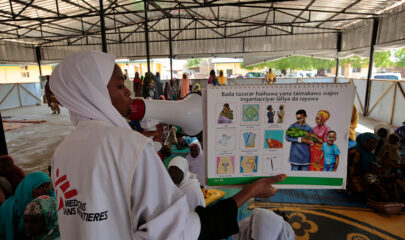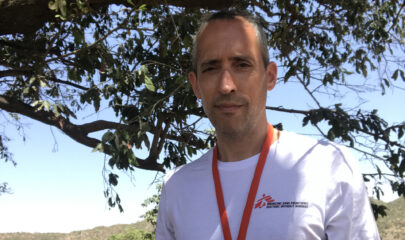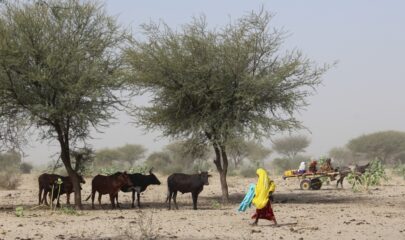Around 30,000 people gather daily in Tapachula, a city on Mexico’s southern border. Most are emigrating from countries in Central and South America. They have often been through long journeys in harsh conditions and some are also survivors of extreme violence or torture.
At first, our mental health team visited places in Tapachula like shelters. Our goal was to reach out to people who had survived extreme violence or torture and who might benefit from the treatment we provide in a Doctors Without Borders/Médecins Sans Frontières (MSF) centre in Mexico City.
Over the past year, we’ve been able to expand our activities, and now we also provide mental health care for migrants and care for survivors of sexual violence.
Our MSF team is made up of six psychologists, two doctors, two social workers, a psychosocial community involvement agent, a mental health supervisor and a team leader. In 2022, we assisted 187 people.
The municipality does not have sufficient capacity to assist the people here. There are no shelter spaces or basic services. There are shelters run by other organizations, but they aren’t able to care for so many people and there is a lack of access to healthcare in general. MSF is the only organization offering specialized healthcare for migrants who have survived violence or torture.
People who are here as migrants live mainly on the streets, although where they tend to stay is often based on their nationality. The majority of people are Haitian and Honduran, while the number of people from Venezuela has recently grown significantly.
Surviving extreme violence can have a severe impact on people’s mental health.
The main things we see are post-traumatic stress, acute depression and anxiety. Some of our patients don’t want to continue living. We have patients who are survivors of rape and others who have been injured with firearms. Some have been mutilated while others have witnessed the murder of family members.
I have never cared for as many people with suicidal ideation as I have here, to give some scale to the level of severity of the symptoms we see. Just in the month of August 2022, there were three cases.
In addition, there are other factors that aggravate these symptoms, such as lack of access to humanitarian assistance, which also affects people emotionally. Changes in immigration policies also have an impact on mental health, as well as uncertainty and rejection.
HEALTHCARE DENIED BECAUSE PEOPLE ARE MIGRANTS
Access to healthcare is not guaranteed for migrants – much less when it’s mental health. It is still very restricted in health centres and migrants sometimes face discrimination. The reality is certain services or medicines are denied to specific people because they are migrants.
We have cases of psychiatric patients who are at risk, and access to public healthcare for them does not exist. This lack of specialized care also applies to local people. The only psychiatric hospital is in Tuxtla Gutiérrez – more than four hours by car from here.
There are women who need prenatal monitoring but who don’t have access. We have documented cases of obstetric violence. Many patients have told us they were denied care or were not treated with respect.
The most complex cases are sent to the comprehensive care centre in Mexico City, where our team made up of physical and mental health professionals, physiotherapists and social workers provide specialized multidisciplinary care to people who are survivors of extreme violence and torture, including migrants, refugees and Mexicans.
SUPPORTING PEOPLE WHO ARE FORGOTTEN
I feel like I’m doing my part. Managing to make effective referrals, helping people access medical care and assisting their health; these are the most satisfying things for me. Supporting people who have been forgotten.

The last patient I saw with suicidal ideation said to me, “I’m telling you because I see you as a father.” That really touched me.
We have to talk together with local people here and help them to understand the stories of those who have suffered so much. Many of the parents, grandparents or great-grandparents of Tapachula were once migrants too, so perhaps they can understand current struggles.
Unfortunately crises continue, forcing people to leave their homes and seek shelter. The violence and cruelty they experience in their own countries and on the road keep happening. Over the years, since we’ve been carrying out the migrant care project in Mexico, the situation has not improved, it has only deteriorated. The cases of extreme violence and torture we handle are just the tip of the iceberg.
I think of the 30,000 migrants from Tapachula, five per cent of them are survivors of extreme violence. In my opinion, what these people need from us, as human beings, is empathy.

Mexico 2023. © Yesika Ocampo/MSF


